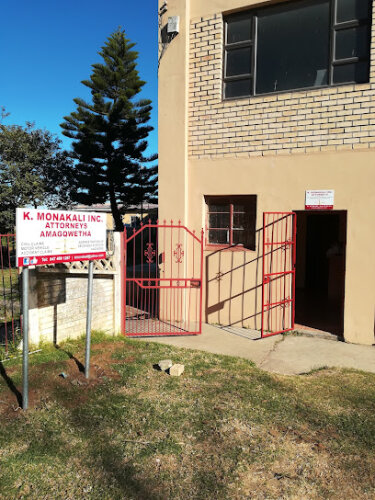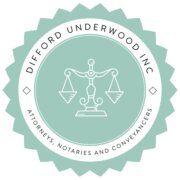Best Foreclosure Lawyers in East London
Share your needs with us, get contacted by law firms.
Free. Takes 2 min.
Free Guide to Hiring a Real Estate Lawyer
List of the best lawyers in East London, South Africa
About Foreclosure Law in East London, South Africa
Foreclosure is a legal process through which a lender or creditor seeks to repossess a property when the borrower defaults on their mortgage or loan payments. In East London, South Africa, as in the rest of the country, foreclosures primarily occur when homeowners are unable to keep up with their bond repayments. The process is regulated by national South African law, including the National Credit Act and the relevant High Court rules, but local context such as economic and social conditions in East London can impact how cases unfold. Understanding foreclosure law is crucial for both property owners and buyers who may encounter properties in this situation.
Why You May Need a Lawyer
Legal representation is highly recommended in foreclosure matters because of the significant financial and personal implications. Common situations where legal help may be necessary include:
- Facing imminent repossession due to missed bond payments
- Receiving a summons from a bank or creditor regarding foreclosure action
- Needing to negotiate with lenders for payment arrangements or to access relief programs
- Disputing the amount claimed by the lender is incorrect or that procedures were not followed
- Wanting to ensure your rights and interests are protected during property auctions or sales in execution
- Seeking to understand the legal consequences on your credit profile, personal assets, and future borrowing
- Assisting with the purchase of a repossessed property as an investor or new homeowner
Legal complexity, strict deadlines, and the risk of losing your home mean an experienced attorney can provide advice, negotiation support, and court representation to achieve the best possible outcome.
Local Laws Overview
Foreclosures in East London are primarily subject to South African law, but it is important to be aware of particular aspects relating to local implementation and the specific courts involved:
- National Credit Act (NCA): Sets out the rights and responsibilities of borrowers and lenders, including fair process and the obligation on banks to follow specific steps before foreclosure.
- High Court Jurisdiction: Foreclosure is a court-driven process, typically managed through the East London High Court or, in some cases, magistrate’s courts depending on the value and complexity.
- Sale in Execution: If a bondholder fails to catch up payments, the court may order the sale of the property at a public auction to recover the outstanding debt.
- Debt Review Processes: South African law provides for debt counseling and review, which may offer protection or alternatives to foreclosure for qualifying debtors.
- Eviction: Once a property is transferred post-foreclosure, eviction proceedings may follow if occupants do not vacate the property. These are governed by the Prevention of Illegal Eviction from and Unlawful Occupation of Land Act (PIE).
- Local Authorities: Municipal rates and taxes in arrears may also factor into foreclosure and property transfer processes in East London.
Frequently Asked Questions
What is foreclosure, and how does it work in East London?
Foreclosure is when a creditor, usually a bank, takes legal steps to repossess a property after the owner defaults on mortgage payments. In East London, the process involves the court ordering the sale of the property at auction so the debt can be repaid.
What steps must a bank take before starting foreclosure?
Before foreclosure, the lender must give you written notice, try to assist through payment arrangements, and allow you time to resolve arrears. Only after these steps can they approach the court for an order to sell your property.
Can I stop my home from being foreclosed on?
Yes, options include negotiating payment plans, applying for debt review, letting the bank know of your financial difficulties early, or settling the arrears before the court order is granted.
What is a sale in execution?
A sale in execution is a public auction, ordered by the court, where your property is sold to cover the outstanding amount owed to creditors, most commonly the mortgage lender.
Are there ways to avoid eviction after foreclosure?
The new owner, usually the bank or auction buyer, can apply to court for your eviction. However, you may be granted extra time depending on your situation or by agreement. Legal advice can assist you in negotiating your exit.
How does foreclosure affect my credit record?
A foreclosure and any judgment entered against you will negatively impact your credit report, making it harder to get loans in the future.
What is debt review, and how can it help?
Debt review is a legal process intended to help people in financial distress restructure their debts and avoid foreclosure, provided you apply before legal proceedings are too far advanced.
Do I have to attend court in East London if facing foreclosure?
Typically, you or your legal representative should attend court when a foreclosure matter is heard. If you don’t respond or attend, the court can grant an order by default.
Can I buy back my property after it's been sold at auction?
Once the property is sold and transferred to a new owner, you generally cannot reclaim it. However, sometimes you can settle the outstanding debt before transfer if all parties agree.
What should I do if I’ve been served with a foreclosure summons?
Seek legal advice as soon as possible. Do not ignore the summons-respond within the time indicated and explore your options with a qualified attorney or debt counselor.
Additional Resources
For anyone in East London dealing with foreclosure issues, the following resources can provide help and guidance:
- East London High Court: The venue for foreclosure proceedings in the area.
- Legal Aid South Africa: Provides free or low-cost legal advice and court representation for those who qualify financially.
- The Law Society of South Africa: Offers a directory of qualified attorneys in East London with property law expertise.
- National Credit Regulator (NCR): Regulates credit providers and debt counselors; assists with complaints and debt review.
- Debt Counsellors: Registered professionals who can assist with debt review and negotiations to avoid foreclosure.
- Municipal Legal Services Office: For disputes relating to municipal accounts and rates on foreclosed properties.
Next Steps
If you are facing foreclosure or need advice, take these steps:
- Gather all documents related to your mortgage, bank correspondence, and any legal notices or summons.
- Contact a qualified attorney-preferably with experience in foreclosure or property law in East London-for a consultation.
- If you cannot afford an attorney, reach out to Legal Aid South Africa or other community legal advice centers.
- Consider approaching a registered debt counselor if you are struggling with multiple debts, but do this as early as possible before court proceedings are too advanced.
- Act promptly-deadlines for responding to court documents and for contesting foreclosure actions are very strict and missing them can limit your options.
- Ask your lawyer to explain every stage of the process and your available options.
Remember, the sooner you seek professional advice, the better your chances of protecting your rights and interests.
Lawzana helps you find the best lawyers and law firms in East London through a curated and pre-screened list of qualified legal professionals. Our platform offers rankings and detailed profiles of attorneys and law firms, allowing you to compare based on practice areas, including Foreclosure, experience, and client feedback.
Each profile includes a description of the firm's areas of practice, client reviews, team members and partners, year of establishment, spoken languages, office locations, contact information, social media presence, and any published articles or resources. Most firms on our platform speak English and are experienced in both local and international legal matters.
Get a quote from top-rated law firms in East London, South Africa — quickly, securely, and without unnecessary hassle.
Disclaimer:
The information provided on this page is for general informational purposes only and does not constitute legal advice. While we strive to ensure the accuracy and relevance of the content, legal information may change over time, and interpretations of the law can vary. You should always consult with a qualified legal professional for advice specific to your situation.
We disclaim all liability for actions taken or not taken based on the content of this page. If you believe any information is incorrect or outdated, please contact us, and we will review and update it where appropriate.











